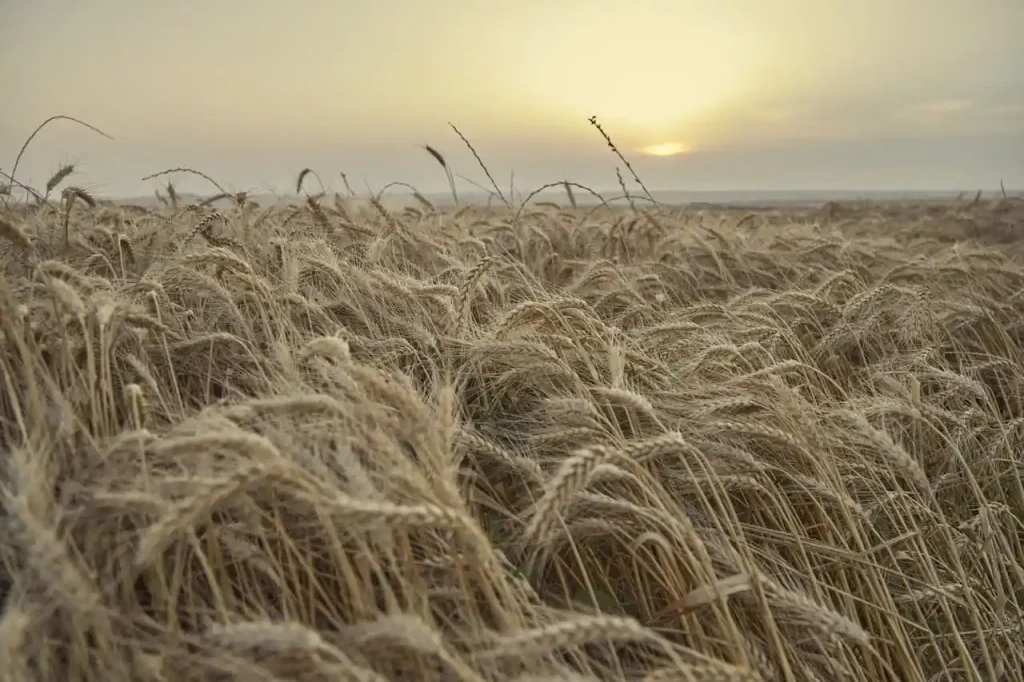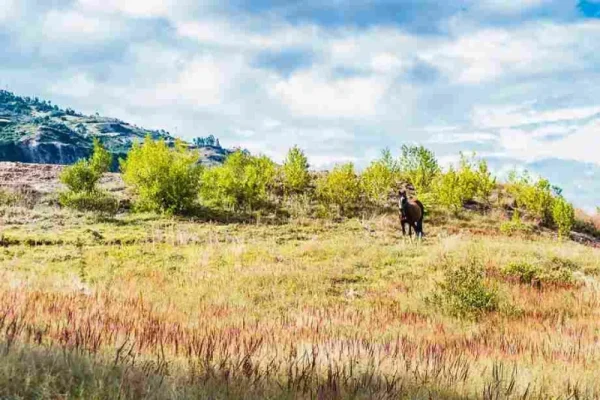The third month of the desi calendar is called Jeth (ਜੇਠ, جیٹھ). It typically falls in May and June (mid-May to mid-June). It can be harsh for people and other living beings like animals and plants because it is the peak of summer. The days get hotter and longer as the temperature rises, but the nights remain warm. Flowers bloom and enhance natural beauty.
During this month, farmers usually prepare their fields for the next Kharif crop and spray the crops to control pests. Jeth is also an ideal month for harvesting crops like wheat and barley. So the farmers harvest these crops this month.
Jeth Calendar 2025 (ਜੇਠ)
Key Events of ਜੇਠ
- Martyrdom of Guru Arjan Dev Ji
- Ganga Dussehra
- Nirjala Ekadashi
- Ashura (18 Jeth)
An important day for the Sikh community is the Martyrdom of Guru Arjan Dev Ji, observed with prayers and religious ceremonies. Ganga Dussehra‘ and Nirjala Ekadashi are important days in the Hindu community. In some specific villages of Pakistan, there is a unique local tradition that also commemorates the memory of Ashura on the 18th of Jeth (31 May 2025), which is distinct from the universal observance in the Islamic month of Muharram.
Furthermore, different Gurpurab dates of this month are mentioned below in the table and you can check out the Harh Calendar 2025 to be aware of upcoming important dates.
Significant Dates of ਜੇਠ
| Event | Gregorian Date | Day |
|---|---|---|
| EventSangrand | Date15 May 2025 | DayThursday |
| EventMasya | Date27 May 2025 | DayTuesday |
| EventPanchami | Date1 June 2025 | DaySunday |
| EventDashmi | Date6 June 2025 | DayFriday |
| EventPuranmashi | Date11 June 2025 | DayWednesday |

Gurpurab Dates of ਜੇਠ
| Gurpurab | Gregorian Date | Day |
|---|---|---|
| Gurpurab Chhota Ghallughara (Kahnuwan) | Date 15 May 2025 | Day Thursday |
| Gurpurab Birth S. Jassa Singh Ahluwalia | Date 18 May 2025 | Day Sunday |
| Gurpurab Shaheedi Saka Paonta Sahib | Date 22 May 2025 | Day Thursday |
| Gurpurab Gurgaddi Shri Guru Hargobind Ji | Date 20 May 2025 | Day Tuesday |
| Gurpurab Guru Arjan Dev Ji Shaheedi Diwas | Date 30 May 2025 | Day Friday |
| Gurpurab Shri Akal Takth Sahib Te Hamla | Date 4 June 2025 | Day Wednesday |
| Gurpurab Jor Mela Gurudwara Shri Reetha Sahib | Date 11 June 2025 | Day Wednesday |
| Gurpurab Bhagat Kabir Jayanti | Date 11 June 2025 | Day Wednesday |
| Gurpurab Janam Diwas Guru Hargobind Ji | Date 12 June 2025 | Day Thursday |
Interesting Facts about ਜੇਠ
1. Peak of Summer & Water Scarcity:
- ਜੇਠ (جیٹھ) is known for extreme heat, with temperatures soaring high. Many rivers, ponds, and wells start drying up, making water a precious resource.
- To beat the heat, people drink refreshing drinks like lassi, chhaas (buttermilk), and sugarcane juice.
2. Season of Mangoes:
- ਜੇਠ (جیٹھ) is the season when mangoes start ripening, making them a favorite summer fruit.
- People enjoy different varieties like Langra, Chaunsa, and Dussehri, while farmers begin mango harvesting.
3. Sikh Tradition of Chabeel:
- During this month, Sikhs organize Chabeel (free sweetened water stalls) to help people stay hydrated and remember the sacrifice of Guru Arjan Dev Ji.
- It is a beautiful tradition of selfless service (sewa) that continues even today.
4. Longer Days, Shorter Nights:
- The days in ਜੇਠ (جیٹھ) are longest of the year, giving farmers extra time to work in their fields.
- The festival of Summer Solstice in some cultures marks the longest day during this month.
5. Effect on Animals and Birds:
- The intense heat affects animals and birds. Many seek shelter under trees or near water sources.
- People put earthen water pots outside for birds and stray animals to help them survive the heat.
7. Holy Dips in Rivers:
- Many people take holy dips in rivers like the Ganga and Yamuna during festivals like Ganga Dussehra, believing it washes away sins and brings peace.
8. Folk Songs & Summer Festivities:
- In Punjab, villagers sing folk songs in the evenings to relax after a hot day.
- Women enjoy Giddha and Bhangra, and fairs are held in some places.
Conclusion
We can conclude that ਜੇਠ (جیٹھ) is one of the hottest month. Despite the intense heat, farmers must prepare for the next crop cycle and harvest important grains. The month also holds religious significance with various Sikh and Hindu events, making it both a challenging and spiritually significant time.

